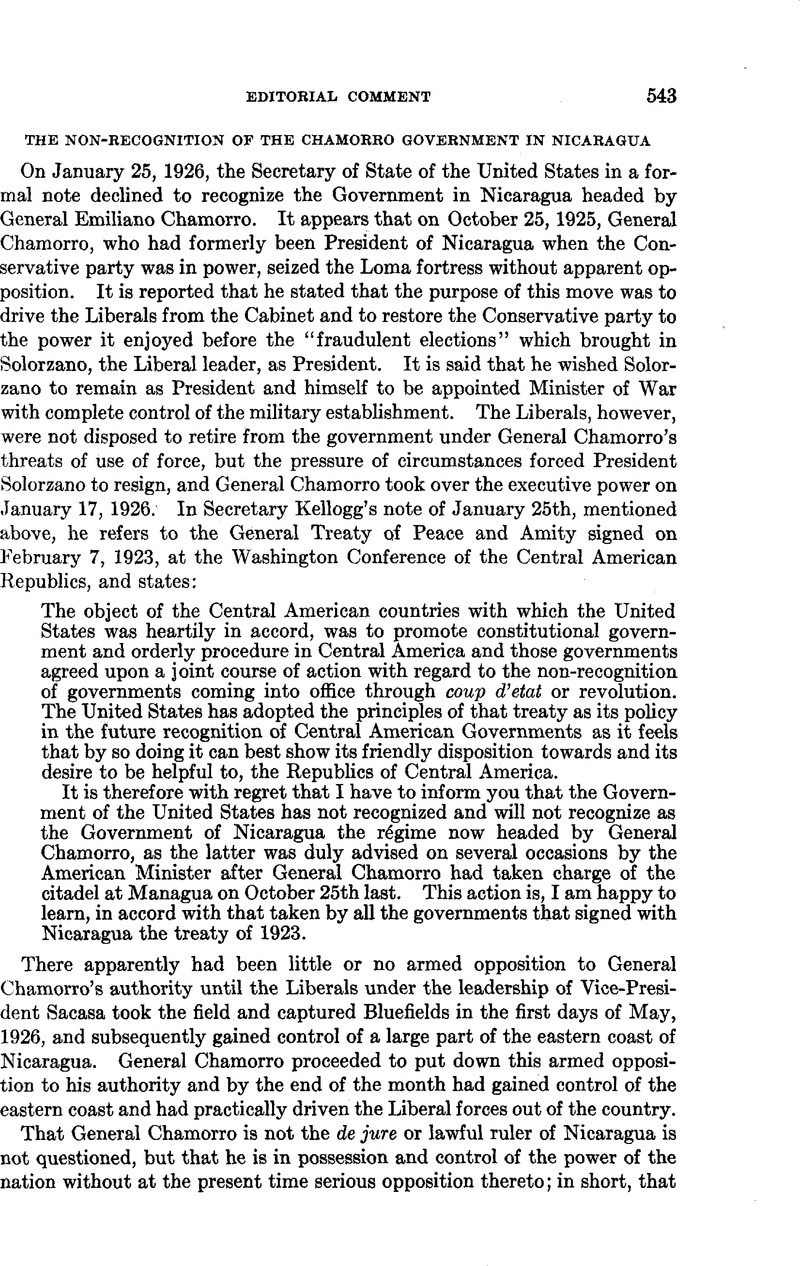Published online by Cambridge University Press: 04 May 2017

1 Luis Anderson, "De Facto Government," Inter-America, Vol. 8, p. 520.
2 Great Britain ʋ. Costa Rica, 1923, Wm. H. Taft, Arbitrator, this JOURNAL, Vol. 18,p. 147
3 Luis Anderson, op. tit, p. 511.
4 See Robert Lansing, “Recognition of the Mexican Government by the United States,”La Prensa, Aug. 10, 1924.
5 In Mauran ʋ. Insurance Company, 1867 (6 Wallace, 1), the United States Supreme Court said: “Another illustration will be found in a capture by a de facto government, which government is defined to be one in possession of the supreme or sovereign power, but without right—a government by usurpation, founded perhaps in crime, and in the violation of every principle of international or municipal law, and of right and justice; yet, while it is thus organized, and in the exercise and control of the sovereign authority, there can be no question between the insurer and the insured as to the lawfulness of the government under whose commission the capture has been made.”
6 This Journal, Vol. 18, pp. 153-154.